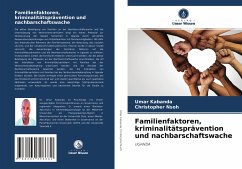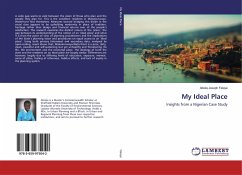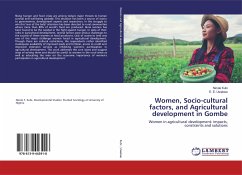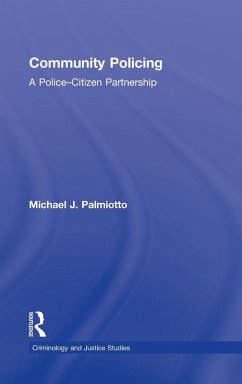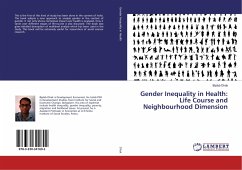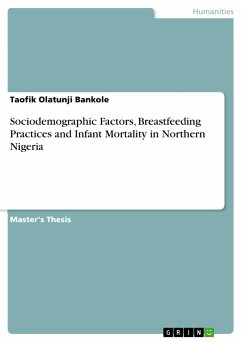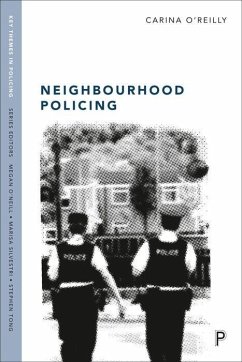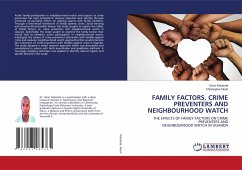
FAMILY FACTORS, CRIME PREVENTERS AND NEIGHBOURHOOD WATCH
THE EFFECTS OF FAMILY FACTORS ON CRIME PREVENTERS ANDNEIGHBOURHOOD WATCH IN UGANDA
Versandkostenfrei!
Versandfertig in 6-10 Tagen
55,99 €
inkl. MwSt.

PAYBACK Punkte
28 °P sammeln!
Active family participation in neighbourhood watch and support to crime preventers has high potential to improve Uganda's local security through enhanced co-operative efforts on policing agents with family members. Through a theoretical framework of family systems, strain, social learning and structural-functionalist theory, this study sought to explain the effect of family factors on crime preventers and neighbourhood watch in Uganda. Specifically, the study sought to examine the family factors that would limit its members' active participation in neighbourhood watch; investigate the nature o...
Active family participation in neighbourhood watch and support to crime preventers has high potential to improve Uganda's local security through enhanced co-operative efforts on policing agents with family members. Through a theoretical framework of family systems, strain, social learning and structural-functionalist theory, this study sought to explain the effect of family factors on crime preventers and neighbourhood watch in Uganda. Specifically, the study sought to examine the family factors that would limit its members' active participation in neighbourhood watch; investigate the nature of crime preventers' interaction with families against crime and evaluate neighbourhood watch approaches that would promote the interaction of crime preventers with families against crime in Uganda. The study adopted a mixed research approach which was descriptive and correlational in nature with both quantitative and qualitative methods. A two-stage sampling technique was applied to identifycultural regions and specific districts in the study.



